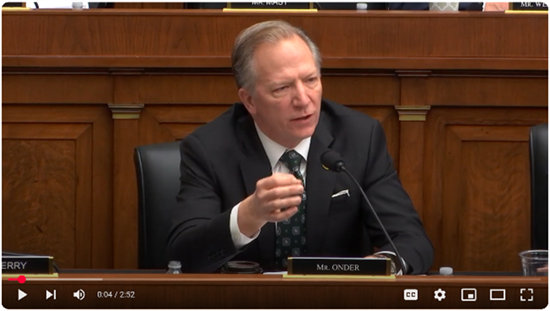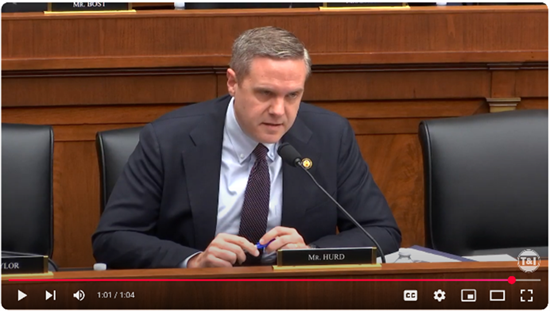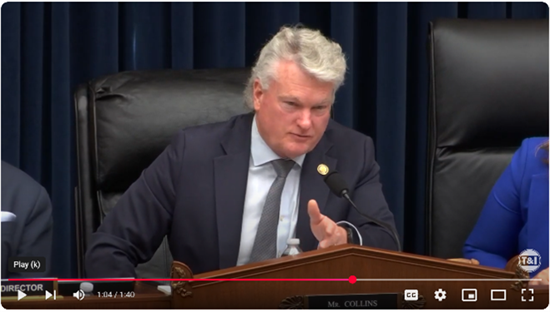Press Releases
Clean Water Act Permitting Reforms Needed So That America Can Build InfrastructureWashington, D.C. – Witnesses at a Water Resources and Environment Subcommittee hearing today testified about how commonsense Clean Water Act (CWA) permitting reforms can address regulatory uncertainty and the abuses that have delayed infrastructure projects, increased project costs, and blocked projects over issues unrelated to clean water. The Subcommittee’s hearing examined how Congress can ensure the CWA balances the goal of protecting water quality with building infrastructure in a timely manner. Noah Hanners, Executive Vice President of Nucor Corporation, the largest steel producer in the United States, appeared on behalf of the National Association of Manufacturers. He testified that companies like his create good-paying jobs for Americans “all while developing and deploying technologies that make our environment cleaner.” But he cited just how consequential permitting delays are to manufacturers and others throughout the regulated community: “It is no surprise that in a 2024 survey of manufacturers, 72 percent of respondents said that the length and complexity of the permitting process affected their investment decisions. That’s the real problem. If we want to grow America’s economy, we need to fix this broken system.” The hearing covered a range of CWA permitting and regulations, including CWA Sections 401, 402, and 404, as well as recent concerns about the Biden Administration’s burdensome and unlawful Waters of the United States (WOTUS) rule. Witnesses agreed that when states carry out delegated permitting authorities, the process is often much more certain and dependable compared to dealing with federal agencies. Rep. Bob Onder (R-MO) discussed this difference with Buddy Hasten, President and CEO of Arkansas Electric Cooperative Corporation and testifying on behalf of the National Rural Electric Cooperative Association:
However, Robert D. Singletary, Executive Director of the Oklahoma Department of Environmental Quality, noted that while states have a vital role in protecting water quality within their borders, certain states have weaponized the CWA to veto projects they philosophically disagree with, rather than for water quality reasons. He recommended that Congress consider placing reasonable limits on the Section 401 process for the state certification of water quality to prevent future abuses of the program. Rep. Vince Fong (R-CA) discussed with Singletary the potential for more Section 401 permitting abuses under the Biden Administration’s Water Quality Certification Rule that went into effect in 2023:
Witnesses discussed the costs of permitting delays and uncertainty, not only to the regulated community, but to all Americans. Rep. Jeff Hurd (R-CO) and Hasten discussed how customers ultimately bear the costs of when, for example, an electric cooperative’s project gets slowed down by permitting delays. He agreed that these types of delays and project cost increases act as a hidden tax on rural America:
Chairman Collins talked with Hanners about a massive $800 million cost increase associated with a Section 404 permitting delay for a steel mill project in West Virginia, how this and similar delays have made Hanners’ company more cautious about investing in such job-creating projects, and how supporting states’ rights in the regulatory process and reasonable limits to judicial reviews are ways to improve permitting processes:
To address permitting delays, witnesses’ recommendations to the Committee included:
In the 118th Congress, the House of Representatives approved H.R. 7023, the Creating Confidence in Clean Water Permitting Act, which included a number of CWA reforms to address concerns raised at today’s hearing. Last Congress, the House also approved H.R. 1152, the Water Quality Certification and Energy Projects Improvement Act of 2023, to streamline and clarify the Section 401 permitting process, and the bill was also included in H.R. 1, the Lower Energy Costs Act. More information from this hearing is available here. |










